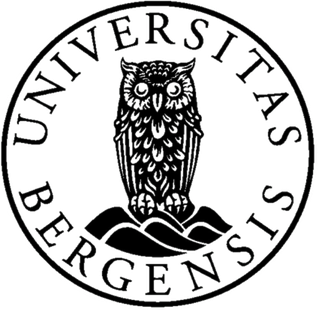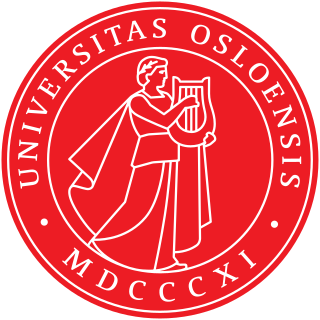Activities
The Centre is an independent research foundation funded by the Norwegian Ministry of Education and Research. Since its opening in 1992, CAS has hosted more than 100 research projects and 1,300 scholars. The goal is to provide scholars with an intellectually stimulating experience in an international, interdisciplinary research environment during their stay in Oslo.
The day-to-day operations of CAS are managed by a scientific director and an administrative team of five permanent staff members.
CAS Grants
The primary activities of the Centre are designed to support excellent blue skies research.
CAS funds projects within and across the fields of the humanities, social sciences and natural sciences. The Centre supports established scholars through the CAS Research Grant and early career scholars through the Young CAS Grant.
The CAS Research Grant is the Centre’s funding opportunity for established researchers. Recipients of a CAS Research Grant can invite scholars from all around the world, at any stage of their academic career, to participate in their project. Each year, the board selects three research projects within the fields of:
The Young CAS Grant is the Centre’s funding opportunity for early career scholars below the age of 40. Recipients of a Young CAS Grant receive funding and support for their research project and gain valuable experience from organizing multiple workshops and a two-month research stay at CAS.
The Young CAS Grant programme is a collaboration between CAS, the Young Academy of Norway (AYF) and The Norwegian Academy of Science and Letters (DNVA).
CAS believes that research is most successful when conducted in international teams. Therefore, the Centre provides funding for research groups working together on a common project, instead of supporting individual researchers. The projects are initiated and led by applicants from Norwegian partner institutions.
History
CAS is located in the Norwegian Academy of Science and Letters building, formerly known as Statsråd Astrup's Villa, at Drammensveien 78 in Oslo.
The idea of an elite research center in Norway was launched by Gudmund Hernes in a 1986 op-ed in Dagbladet, where he argued that Norway needed a research center inspired by et al. The Institute for Advanced Study in Princeton.
In 1989, Senter for høyere studier (SHS) was established as a foundation and the new institution was officially opened on September 1, 1992. Gudmund Hernes served as the Centre's chairman from its establishment in 1989 until he became a cabinet minister in the Ministry of Church, Education, and Research in Gro Harlem Brundtland's Third Cabinet.
In 2002, the Centre changed its Norwegian name to Senter for grunforskning ved Det Norske Videnskaps-Akademi (lit. 'Centre for Basic Research at the Norwegian Academy of Science and Letters'). The English name has always been Centre for Advanced Study at the Norwegian Academy of Science and Letters.
The idea of elite research has since been continued with the establishment of several Centers for Excellence in Research by the Research Council of Norway. The CAS differs from these centers, among other things, by being a national center, with cooperation agreements with all the major Norwegian universities as well as some scientific colleges.
Chair of the CAS Board of Directors

The University of Bergen is a public research university located in Bergen, Norway. As of 2021, the university has over 4,000 employees and 19,000 students. It was established by an act of parliament in 1946 based on several older scientific institutions dating back to 1825, and is Norway's second-oldest university. It is considered one of Norway's four "established universities" and has faculties and programmes in all the fields of a classical university including fields that are traditionally reserved by law for established universities, including medicine and law. It is also one of Norway's leading universities in many natural sciences, including marine research and climate research. It is consistently ranked in the top one percentage among the world's universities, usually among the best 200 universities and among the best 10 or 50 universities worldwide in some fields such as earth and marine sciences. It is part of the Coimbra Group and of the U5 group of Norway's oldest and highest ranked universities.

The University of Oslo is a public research university located in Oslo, Norway. It is the oldest university in Norway. Originally named the Royal Frederick University, the university was established in 1811 as the de facto Norwegian continuation of Denmark-Norway's common university, the University of Copenhagen, with which it shares many traditions. It was named for King Frederick VI of Denmark and Norway, and received its current name in 1939. The university was commonly nicknamed "The Royal Frederick's" before the name change, and informally also referred to simply as Universitetet.

The Peace Research Institute Oslo is a private research institution in peace and conflict studies, based in Oslo, Norway, with around 100 employees. It was founded in 1959 by a group of Norwegian researchers led by Johan Galtung, who was also the institute's first director (1959–1969). It publishes the Journal of Peace Research, also founded by Johan Galtung.

The Norwegian Academy of Science and Letters is a learned society based in Oslo, Norway. Its purpose is to support the advancement of science and scholarship in Norway.

Gudmund Hernes is a Norwegian professor and politician for the Labour Party. He was the state secretary to the Secretariat for Long-Term Planning 1980–1981, Minister of Education and Research and Ministry of Church and Cultural Affairs 1990, Minister of Education, Research and Church Affairs 1991-1995 and Minister of Health and Social Affairs 1995-1996 and 1996–1997.
Nils Lid Hjort is a Norwegian statistician, who has been a professor of mathematical statistics at the University of Oslo since 1991. Hjort's research themes are varied, with particularly noteworthy contributions in the fields of Bayesian probability, density estimation and nonparametric regression, model selection, confidence distributions, and change detection. He has also worked with spatial statistics, statistics of remote sensing, pattern recognition, etc.
The Centre for Development and the Environment is a research institute which is part of the University of Oslo. Its focus areas are international development and environmental studies.
Helga Marie Hernes is a German-born Norwegian political scientist, diplomat, and politician for the Labour Party.
forskning.no is an Oslo-based online newspaper established by the Research Council of Norway in 2002. It publishes news about science and research from Norway and abroad. The web site is run by Foreningen for drift av forskning.no, a non-profit organization which has 78 research institutions as members. forskning.no has its own writers and journalists and freelance writers. In addition articles are submitted by the research institutes and then edited by forskning.no staff before being published. Its English-language version is known as sciencenorway.no.
Brit Solli is a Norwegian archaeologist and Professor of Medieval archaeology at the Museum of Cultural History in Oslo. Until 2005, she was Professor in Historic Archaeology at the University of Tromsø.
Eystein Jansen is a Norwegian professor in marine geology and paleoceanography at the University of Bergen, and researcher and former Director of the Bjerknes Centre for Climate Research (BCCR). He is also the vice-president of the European Research Council (ERC), as the scientific leader of the EU's commitment to basic research in the fields of physical sciences and engineering.
Torstein Kristen Fossan Jøssang is a Norwegian physicist.
Eivind Engebretsen is a Norwegian researcher in the medical humanities. He is a full professor of interdisciplinary health science at the Institute of Health and Society (HELSAM) at the University of Oslo.
Torgeir Moan is a Norwegian engineer and professor of marine technology at the Norwegian University of Science and Technology.
Kristin Gjesdal is a Norwegian philosopher and Professor of Philosophy at Temple University. She is known for her expertise in the field of hermeneutics, nineteenth-century philosophy, aesthetics, and phenomenology. Gjesdal is a member of The Norwegian Academy of Science and Letters and she has served on the editorial board of the Stanford Encyclopedia of Philosophy as a subject area expert for 19th Century Philosophy.

Signe Helene Kjelstrup is a Norwegian professor of physical chemistry at the Norwegian University of Science and Technology (NTNU) in Trondheim, Norway. She is a principal investigator at PoreLab, a Center of Excellence at NTNU.
Karin Gundersen is a Norwegian literary scholar and translator. A professor of French literature at the University of Oslo, she is also a translator of French literary works. She was awarded the Bastian Prize in 1993, for her translation of Stendhal's novel The Charterhouse of Parma into Norwegian. She received the Norwegian Critics Prize for Literature in 2006, for translation of Stendhal's autobiography The Life of Henry Brulard into Norwegian langue. She was awarded the Dobloug Prize in 2006.
Peng Lianmao is a Chinese scientist and educator in the fields of nanomaterials.

The Centre for Medieval Studies in Prague is a joint workplace of the Czech Academy of Sciences and Charles University located in Jilská 1 in the Old Town of Prague near St. Giles' Church. The Centre provides a platform for cooperation in advanced research and post-graduate studies between the two founding institutions in fields dealing with the Middle Ages – especially in areas transgressing the boundaries of traditional disciplines – and gaining the necessary contact with international research. The Centre for Medieval Studies is engaged in fundamental research as part of grant projects in medieval studies, and organizes events to support the scientific education of doctoral candidates.
Dag Normann is a Norwegian mathematical logician. He was born in 1947 and is Professor emeritus at the University of Oslo. His research focuses on computability theory with an emphasis on mathematical models for typed algorithms and applications of the foundations of mathematics.







